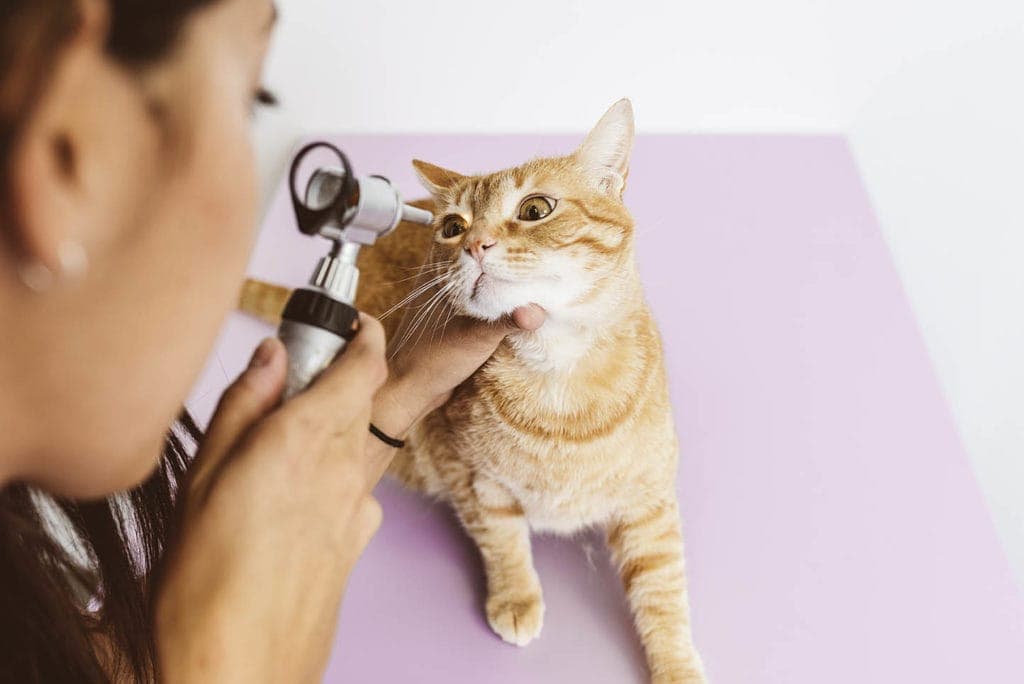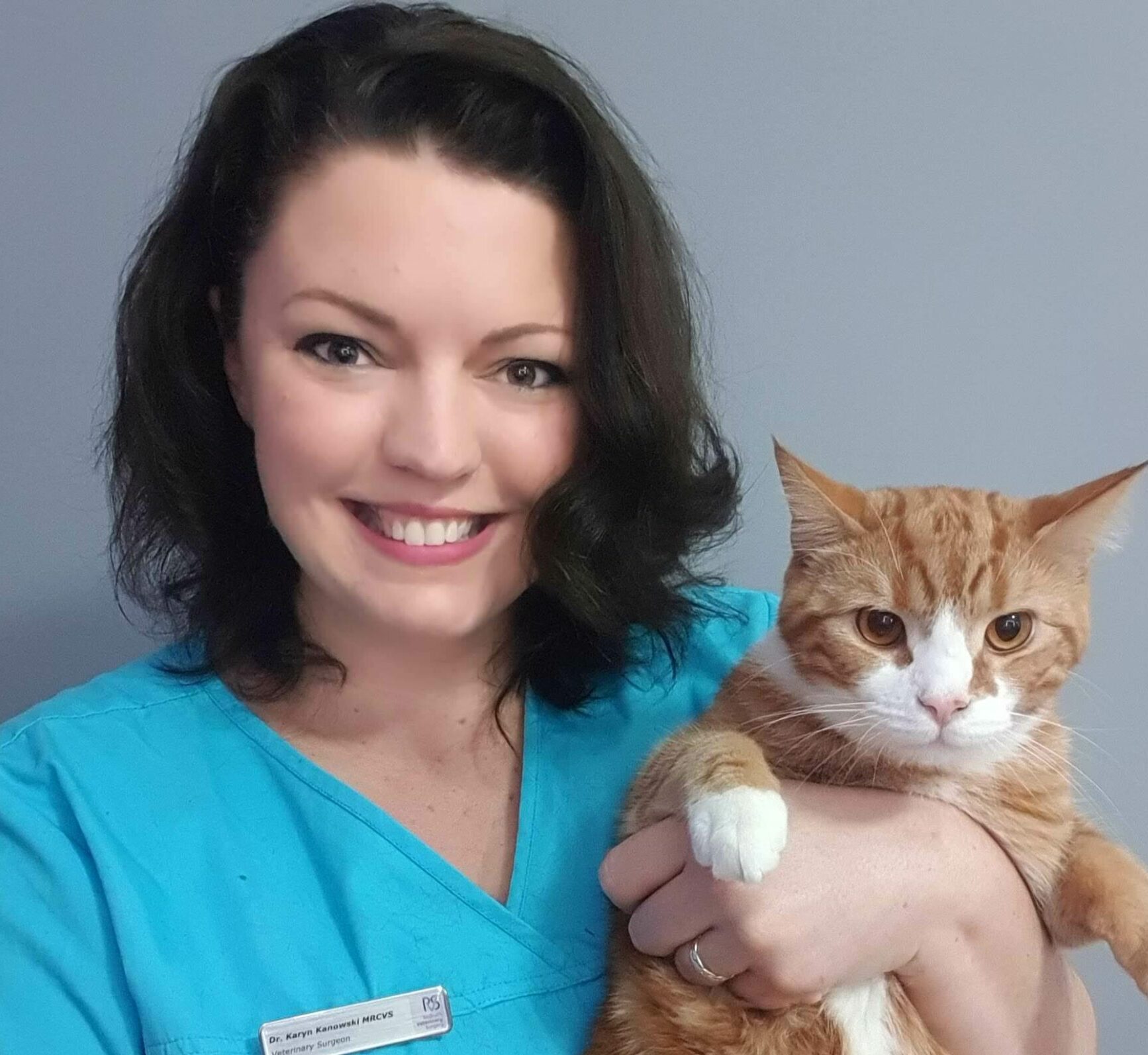My Dog Drank Coffee: Our Vet Explains What to Do (Vet Answer)

Updated on
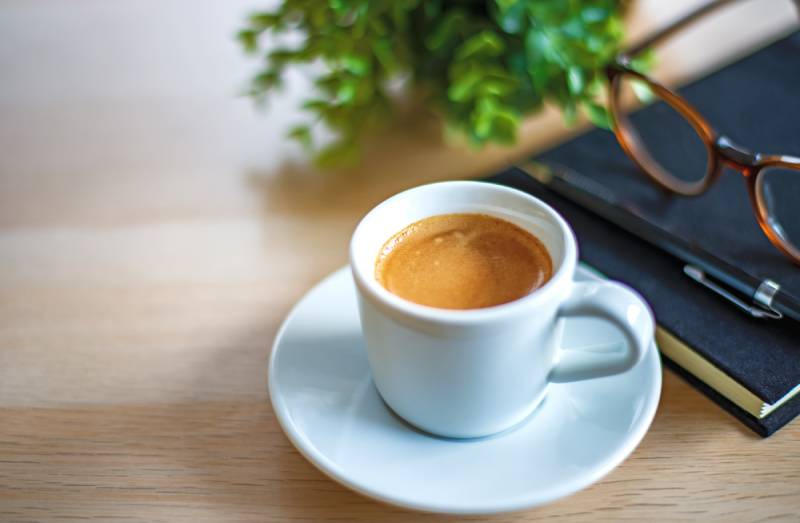
Click to Skip Ahead
Many people enjoy a piping-hot cup of coffee in the morning to energize them for the day. It’s an essential early morning ritual before we start our daily activities. But what happens if you discover your dog lapped up some of your coffee? Do you worry, or is everything going to be okay?
The short answer is yes, you should be concerned if your dog drinks your coffee. While a little bit might not impact your pup, larger quantities of caffeine can be highly toxic to dogs.
What Do I Do If My Dog Drank Coffee?
If you discover that your dog has had some of your coffee, start by taking it away from them so that they can’t drink anymore.
Take a quick look over your dog. Are they acting normally, or are you noticing what could be neurologic signs, such as trembling or seizures? Are they vomiting, weak, or just running around happily? If they show any signs of caffeine toxicity, they must be examined by a veterinarian immediately.
If your dog isn’t showing adverse signs from drinking your coffee, take a moment and call your veterinarian. They may suggest you contact a pet poison hotline to have a veterinary toxicologist assess what your dog drank and devise treatment recommendations.
- ASPCA Animal Poison Control: 888-426-4435
- Pet Poison Helpline: 855-764-7661
Your veterinarian might suggest that you monitor your dog. You’ll want to watch them for signs of toxicity, including gastrointestinal signs, hyperactivity, and seizures.
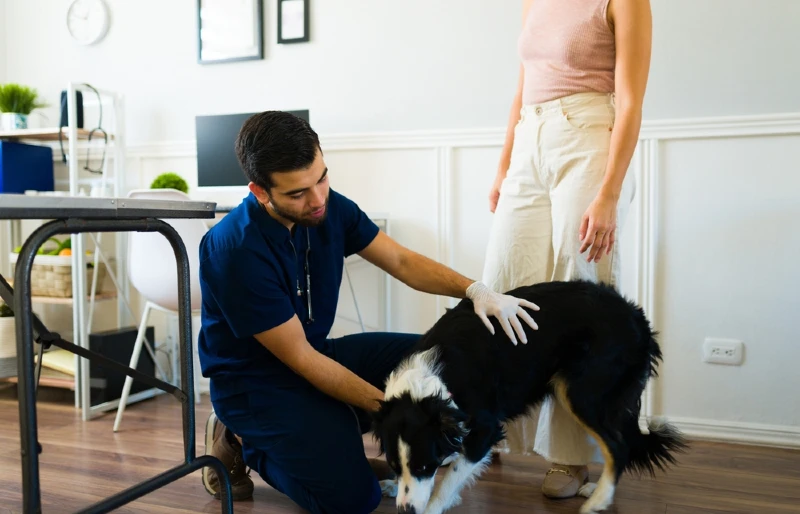
Why Is Coffee Toxic to Dogs?
Dogs tend to be more sensitive to the effects of caffeine, which is the main reason most of us drink coffee. In low doses, caffeine won’t affect your dog. But you might see some restless behavior, vocalizations, or hyperactivity.
However, in higher doses of caffeine, we see some dangerous side effects in dogs.
- Vomiting
- Diarrhea
- Shaking or trembling
- Increased urination
- Tachycardia (elevated heart rate)
- Tachypnea (high breathing rate)
- Hypertension (high blood pressure)
- Hyperthermia (elevated body temperature)
- Seizures
- Death
Dogs are typically affected within the first 30 minutes to 2 hours after ingesting caffeine, but they can experience its effects for 24 to 48 hours after drinking it.
According to the American College of Veterinary Pharmacists, a dog’s toxic dose of caffeine is 63 milligrams per pound (or 140 milligrams per kilogram) of the animal’s weight. Your veterinarian or the poison control line you utilize will need to know your dog’s size and the caffeine source.
- Amount of coffee
- Type of coffee (espresso, decaf, etc.)
- Any additives like chocolate, whipped cream, artificial sweetener
Treatment if Your Dog Drank Coffee
If your dog needs medical care, your veterinarian will perform a physical exam to assess any changes in your dog’s demeanor and vital signs and check for signs like tremors. They will likely recommend blood work and a urinalysis.
Your veterinarian might induce vomiting if your dog recently drank coffee or if they’re worried about your dog having gotten into a more concentrated caffeine source like coffee grounds. Do not try to make your dog vomit unless your veterinarian gives you specific directions to do so because your dog could aspirate.
Your dog might need to take activated charcoal. This medication prevents your dog from absorbing the caffeine it ingests.
If your veterinary team decides your dog needs treatment, they will likely give it fluids. If your dog only drank a small amount of coffee, your vet might suggest subcutaneous fluids. They might recommend intravenous fluids if they’re worried about higher risks of caffeine toxicity.
IV fluids can help prevent your dog from becoming dehydrated and flush the caffeine out of your dog’s system more quickly.
If your dog has cardiac signs, such as an arrhythmia, your veterinarian might monitor it with an electrocardiogram and give medications to correct it. If your dog has muscle tremors, they might give a muscle relaxer. Seizing dogs need more intensive care, such as giving IV phenobarbital or an injectable anesthetic.
If you need to speak with a vet right now but can’t get to one, head over to JustAnswer. It’s an online service where you can talk to a vet in real time and get the personalized advice you need for your pet — all at an affordable price!
Other Considerations if Your Dog Drank Coffee
Even the actual coffee itself isn’t always the thing that your veterinarian is going to worry about. Unfortunately, we put many different things in coffee that can increase the likelihood of causing problems for our dogs.
Some artificial sweeteners or additives contain xylitol. While we do okay with xylitol, it can cause severe consequences for our dogs. It can cause rapid hypoglycemia or low blood sugar in our pups, and it can also cause liver damage. If your dog drank something with xylitol in it, it is a medical emergency.
Creamers and sweeteners can also increase the risk of your dog developing pancreatitis. In addition to being very painful, this condition can be deadly. Even if your dog recovers, they’ll be at a higher risk for developing diabetes in the future.
Coffee grounds are a big problem for dogs. They contain higher concentrations of caffeine, so your dog doesn’t have to eat much to show signs of toxicity.
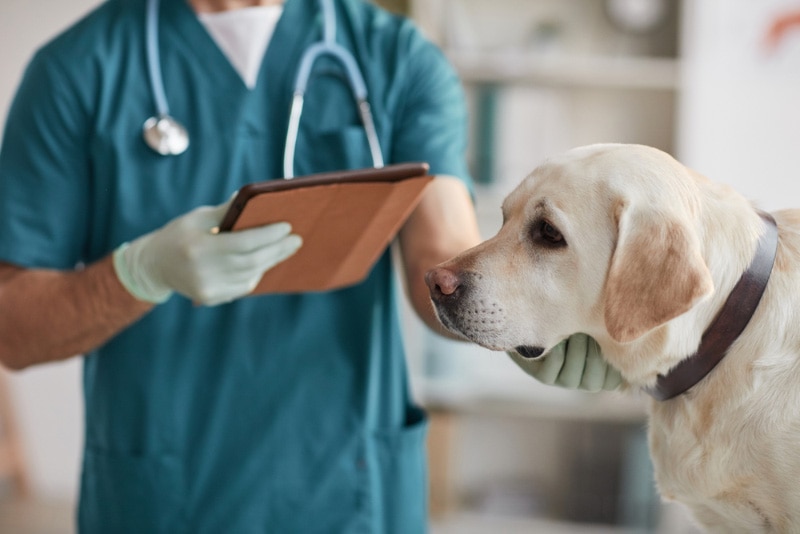
Frequently Asked Questions
How long does it take for a dog to show signs of caffeine toxicity?
Dogs generally show signs of caffeine toxicity within two hours of ingestion. The side effects typically last one to two days, but severe side effects, such as hyperthermia, can lead to other issues that may be long-lasting, such as neurologic damage.
What is the prognosis for a dog with signs of caffeine toxicity?
If your dog only has mild signs of caffeine toxicity, such as hyperactivity, these signs will usually pass, and your dog should return to normal with a good prognosis. If your dog has severe signs of toxicity, such as seizures, the prognosis is poor, and your veterinarian will recommend more intensive medical therapy.
Conclusion
If your dog consumes coffee or coffee products, you must talk to your veterinarian immediately. The caffeine in coffee and some additives can be toxic to our dogs. Even if you don’t notice any changes directly, your dog should be monitored for a day or two to ensure it doesn’t show any aftereffects from the coffee.
- See Also: Does Starbucks Allow Dogs?
Featured Image Credit: Sridee Studio, Shutterstock




